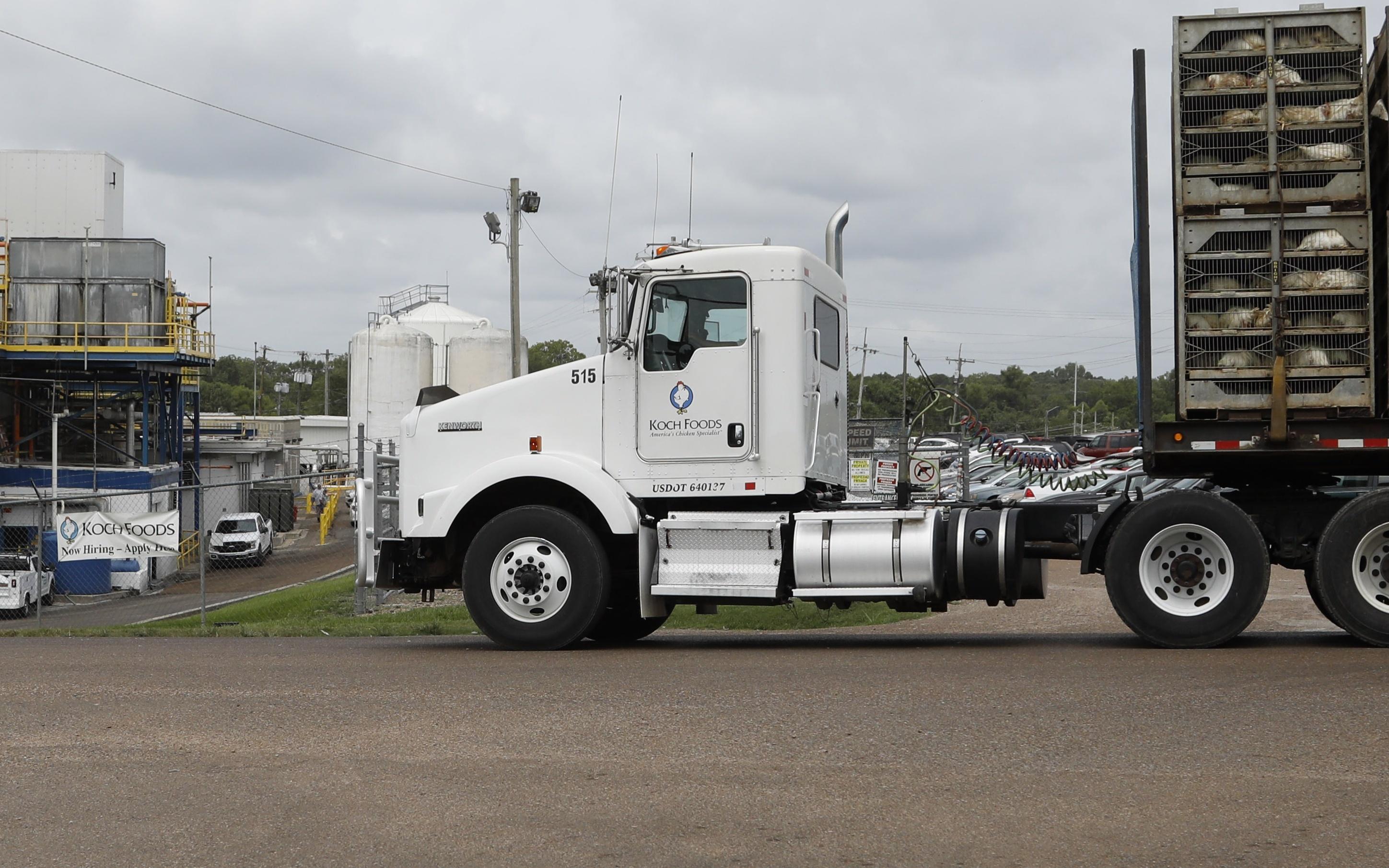Francine Jefferson with Mississippi’s Poor People’s Campaign says poultry plants pay low wages and the majority of employees are Latino and African American. Since the pandemic began she’s heard from workers saying they’re afraid.
“They say I have to go to work. Who is going to feed my children? How am I going to pay my bill or if I don’t go to work they’re going to take points and I’m going to lose my job and these kinds of things” said Jefferson.
Jefferson says at the outset of the crisis, poultry workers weren’t provided with protective equipment. And even now some employees are still going to work when they’re not feeling well because they need the money. Just this week she got a call from a worker who has been hospitalized with Covid 19--and has small children.
“So when they get sick, who takes care of their children?” said Jefferson.
Attorney Roger Doolittle of Jackson is with the United Food and Commercial Workers Union. They represent employees at Koch Foods, Wayne Farms, PECO Foods and Mar Jac. He says safety is a real concern at poultry plants where people work close together.
“There’s a di-bone line, a kill line, an evisceration line, a cut-up line, and these are all lines, hundreds of people, shoulder to shoulder,” said Doolittle.
Doolittle says 7 coronavirus cases have been reported at the PECO plants and 3 at Koch Foods--so far there are no reports of deaths. He says plants are taking precautions like checking temperatures and providing masks. Doolittle emphasizes that shop stewards are telling people they won’t be penalized if they don’t feel well and stay home. But employees aren’t paid for that time.
“We get numbers everyday twice a day of the number of people who come to us with symptoms,” said Cockrell
That’s Sanderson Farm’s CFO Mike Cockrell. The company operates 5 plants in Mississippi and employs 6,000 people. Cockrell won’t discuss the number of infections at their facilities. But he says they are paying workers who test positive for Covid 19 to quarantine at home for 14 days. That also applies to anyone who works close to the infected employee.
“I’m not naive. I know it’s not 100 percent, but I obviously believe that the vast majority of our employees appreciate that we are placing their welfare and priority first,” said Cockrell.
Cockrell says they take temperatures, provide masks three times per day, sanitize facilities and hold small meetings to tell employees how to protect their families.
At a news briefing Thursday, State Health Officer Dr. Thomas Dobbs said he and his Covid 19 outbreak team are going to Scott and Leake Counties where the number of cases is on the rise. By latest count Scott had 316 cases and Leake 204. Tyson, PECO and Koch are among a number of processors in the region.
“We’re going to invest a lot of time in this to see what we can do to improve testing, targeted testing, make sure we can execute our isolation, quarantine plan effectively. Get folks out that need to get tested and make sure everybody feels comfortable and safe,” said Dobbs.
Marshall Barlett owns Home Place Pastures in Como, which produces pork, beef and lamb. He says the company’s smaller size makes it easier to keep workers safe. Most of his 16 employees work in teams.
“The masks, the gloves, the hand sanitizer, and keeping the staff as separate as possible. All the crews that are working in the same rooms together we’ve spread them out. We’ve spread out all our butcher tables and have people working more than six feet apart,” said Bartlett.
Regardless of the precautions companies take, Attorney Cliff Johnson with the MacArthur Justice Center thinks people should adjust their expectations.
“To the extent I can’t get a rib-eye steak or I can’t get or I can’t get certain foods at the same prices, in the same quantities and in the same frequency as I had before maybe a sacrifice I have to make and that all of us have to make in order to keep people, human workers, safe,”
said Johnson.
And the need to make sacrifices may become the new normal.




